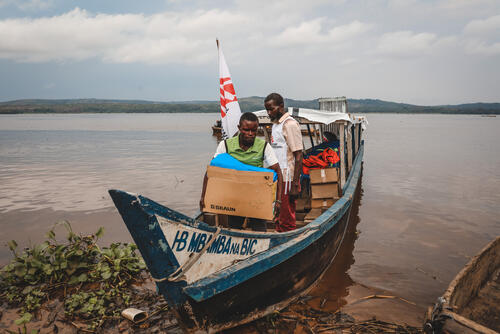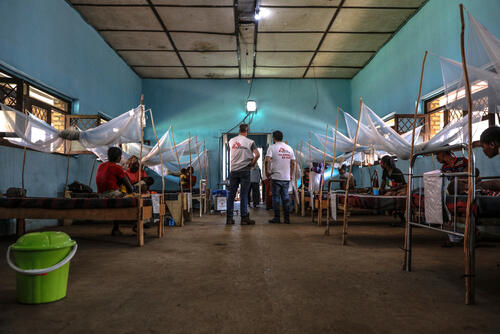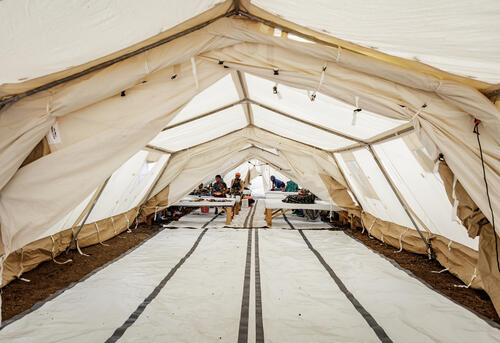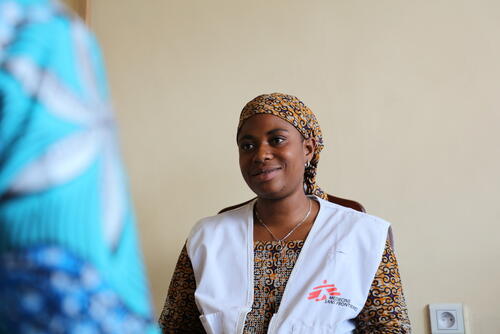Over recent weeks, an upsurge of inter-communal violence in the territory of Kwamouth, Mai-Ndombe province, Democratic Republic of Congo, has seen people being chased and killed, houses and villages burnt to the ground, roadblocks set up to intercept perceived enemies. Thousands of people have fled their homes to the forest or crossed the Kwa river to find shelter in improvised sites in the Bolobo territory.
“When we arrived in the area, we found thousands of people living in deplorable conditions, without shelter, access to drinking water or sanitation,” says Dr Dieya Papy, medical officer in Médecins Sans Frontières’ (MSF’s) emergency team.
“The area has a high prevalence of malaria and people’s living conditions were clearly putting them at risk of getting sick. We had to move quickly,” he says.
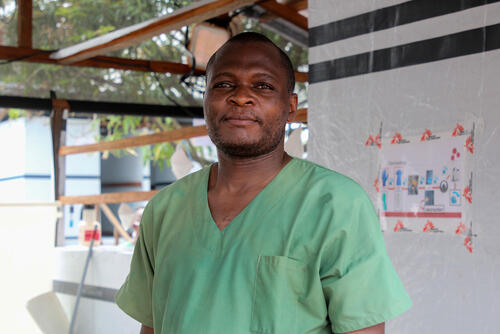
Responding to immediate needs
MSF's emergency team arrived in Kwamouth on 24 August to respond to people’s most pressing needs, while calling on other aid organisations to join the response. In a context of high tensions, the small team also tried its best to assist people who had fled further away.
“Our priority was to transport the seriously injured to Kinshasa and to improve living conditions on the sites as best as we could, by installing latrines and water points and distributing essentials such as mosquito nets, soap and water disinfection tablets,” says Dr Papy.
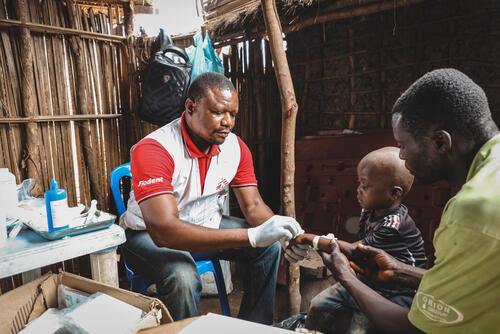
“People’s access to healthcare was extremely limited in the area, so we did donations to local health facilities and launched mobile clinics at the sites for displaced people in Simbambili and Sokoa,” says Dr Papy.
Over the past three weeks, MSF staff, assisted by two nurses from the Ministry of Health, have provided more than 750 medical consultations through mobile clinics, mostly for malaria and respiratory infections. They have also transported seriously injured people to hospitals in Kinshasa by boat and by road.
Patients traumatised by violence
Besides people’s immediate medical needs, the violent events have also left many people psychologically traumatised.
When I heard the shots, I ran away with my sister to our aunt's house. But when we got there, men threatened us with their guns.Astrid*, 11 years old
“When I heard the shots, I ran away with my sister to our aunt's house,” says 11-year-old Astrid*. “But when we got there, men threatened us with their guns. The wanted us to show them the houses inhabited by people from the community they were chasing after.”
“They said they’d kill my little sister if we didn't. So, we pointed to the house in front of us. They went there and killed two children,” she says.
MSF psychologist Joel-Christopher Bolombo has provided mental healthcare to traumatised patients since he arrived in Kwamouth three weeks ago. “Some patients have nightmares, develop a mistrust of other communities that they did not have before, or show signs of depression or feelings of guilt,” he says.
“In addition to providing traditional medical care, it is essential to help them express their feelings through words or drawings. This type of event leaves patients with invisible wounds that need to be addressed too,” says Bolombo.
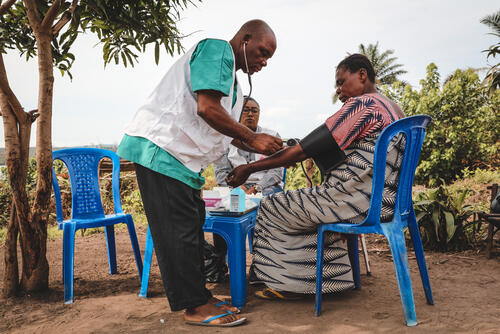
Violence spreads to Bandundu
By mid-September, the security situation in Kwamouth had improved enough to allow many of the displaced people to return home, while the clashes and violence moved eastwards, towards the town of Bandundu.
“Last week, we sent a mobile team along the road to Bandundu to assess the needs, and we immediately found seriously injured people that we transferred to Kinshasa,” says Dr Papy. “The situation in this area remains extremely tense.”
“This week, we saw with our own eyes villages burned down and people massacred, in a very worrying pattern of attacks and revenge attacks,” he says. We have therefore decided to reinforce our presence in Bandundu to provide assistance to displaced people and respond to medical needs.”
At this point, we will leave a team in Kwamouth to be able to respond to any new flare-up of violence and needsDr Dieya Papy, medical officer
While the security situation in Kwamouth town had improved last week, tensions and violence continue to flare up, as happened on 20 September when an attack took place close to town. Following the attack, MSF staff helped treat the wounded at Kwamouth’s general hospital.
“At this point, we will leave a team in Kwamouth to be able to respond to any new flare-up of violence and needs,” says Dr Papy.
This is not the first time that MSF has launched an emergency response in Maï-Ndombe province following inter-communal violence. Following clashes between the Tende and Nunu communities in Yumbi in December 2018 – which caused the deaths of hundreds of people in just a few days – an MSF team treated the wounded in Yumbi’s general referral hospital and ran mobile clinics to provide people with medical care and psychological support.
*name changed to protect identity



